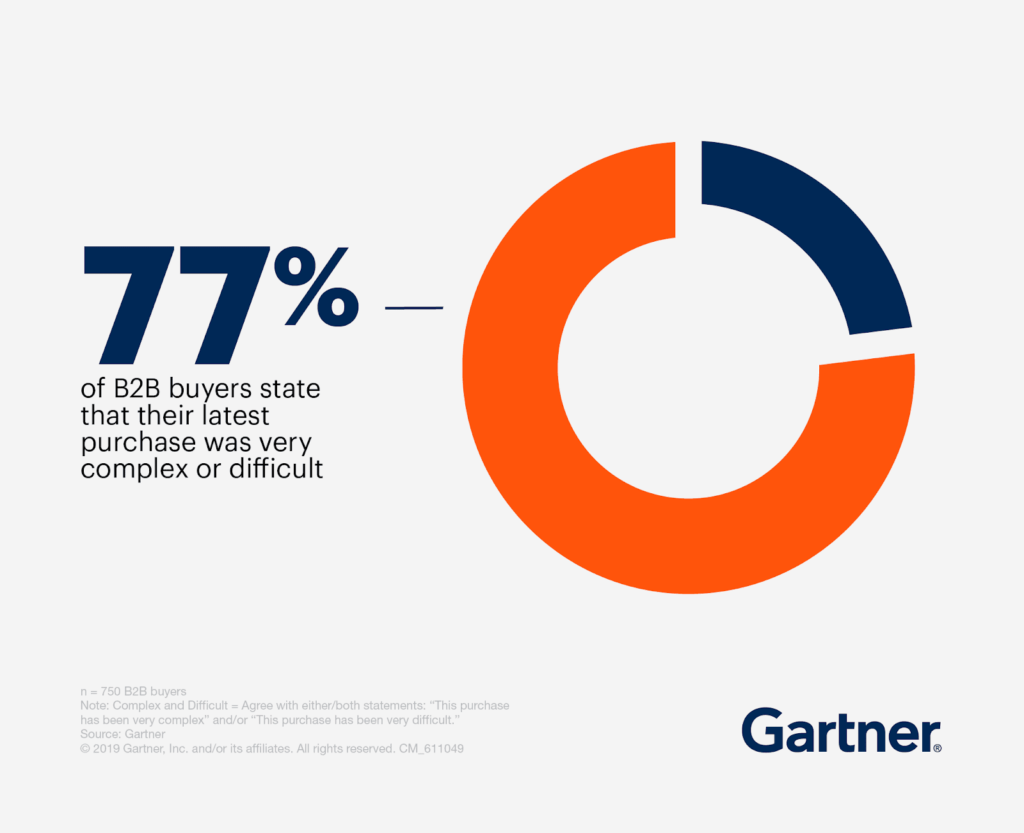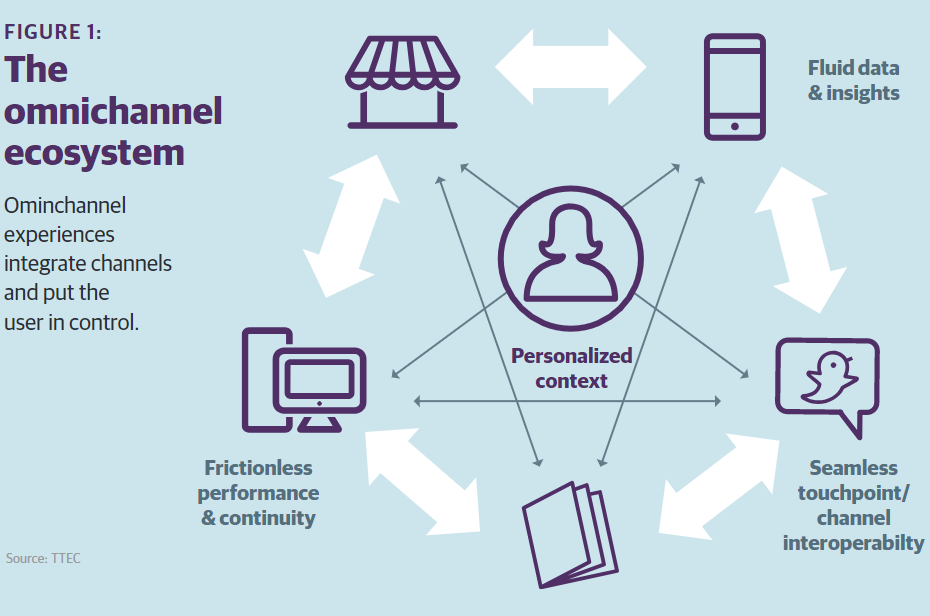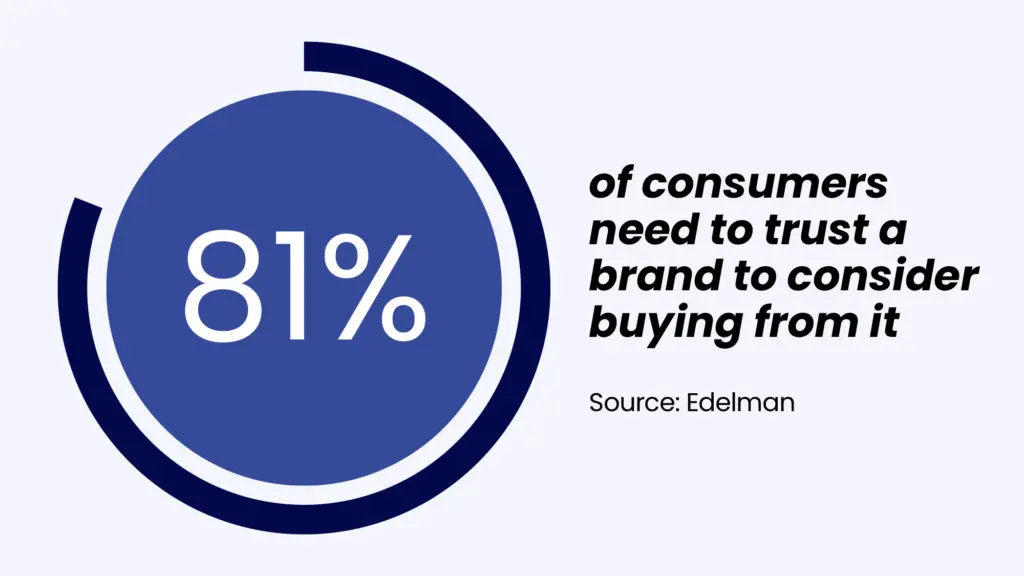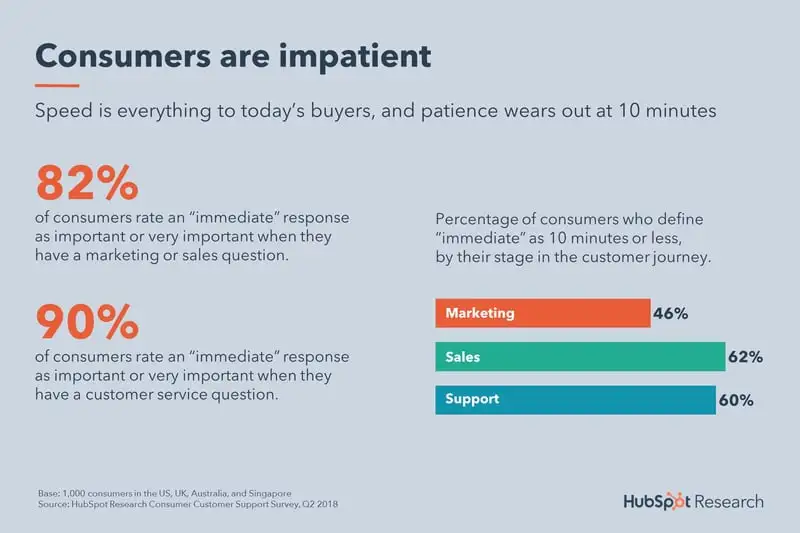How to Improve Your Customer Satisfaction Ratings
In today’s hyper-connected B2B business world, customer perceptions can make or break business success—and it usually happens through customer satisfaction ratings. Via online platforms, customer reviews and satisfaction ratings are now visible and public, meaning companies can’t sweep even the most singular poor customer experience under the rug.
Instead, they must prioritize earning high-scoring and high-volume customer satisfaction ratings that can be used to continually improve offerings and elevate their brand reputation. In this guide, we’ll cover what you need to prioritize in order to achieve this. We’ll dive into what drives customer satisfaction in a modern, tech-driven landscape, and 5 ways you can keep your customers happy (even when things go wrong).
Quick Takeaways:
- Buyers have more control over a brand’s reputation than ever before thanks to public and highly visible customer reviews.
- Decision complexity, longer sales cycles, and high customer expectations can make maintaining high B2B customer satisfaction ratings challenging.
- Even when things go wrong, quick response times, high transparency, and effective solutions can keep customers satisfied.
- Products and services must be continually improved as customer expectations evolve, market trends change, and technology advances.
Customer Satisfaction in a Modern B2B World
Today’s B2B world is controlled by the customer. Not only is competition higher than ever in most B2B industries, but more information is available to buyers and customers right at their fingertips via digital channels like search engines, social media, and vendor websites.
At the same time, public review sites have made it easy to evaluate a company’s track record and see customer satisfaction ratings from current and previous customers, one of the key drivers of purchase decisions.
In other words: If your customer satisfaction ratings are low, you’ll be hard pressed to win new business.
So what does customer satisfaction actually mean? What are some of the key facets about it to know as a B2B marketing and sales professional?
By definition, customer satisfaction is determined by the extent to which a company and its offerings meet a customer’s needs, as well as the customer’s overall happiness with their experience. Important aspects of customer satisfaction to consider include:
B2B Decision Complexity
B2B purchase decisions often involve multiple decision-makers, each with their own set of expectations. There is more information and a greater number of options to evaluate in most markets than any other time in the past. These factors have made purchase decisions more complex and challenging to make. In fact, 77% of B2B buyers reported their last purchase was very complex or difficult.

Ensuring customer satisfaction at this stage requires both differentiating your brand in clear ways that are easy to understand, as well as addressing needs and priorities of multiple stakeholders.
Longer Sales Cycles
B2B sales processes are usually more extended and intricate. Satisfying a B2B customer involves multiple touchpoints, from initial outreach, lead nurturing, and demos through to post-sale support and periodic reviews. Creating optimal experiences at every stage of this journey is paramount to earning consistently positive customer satisfaction ratings.
Higher Value Transactions
With bigger deals come higher expectations. Given the substantial financial investments involved in B2B transactions, companies must offer superior value and solutions that are tailored to specific client needs in order to ensure customer satisfaction.
Personalized Digital Expectations
The modern B2B landscape is increasingly digital. Companies are now expected to provide seamless and omnichannel online experiences, intuitive platforms, and personalized digital solutions that simplify and enhance the customer journey.

This isn’t just after purchase, either—it starts at initial discovery and continues through to retention and renewal stages.
Relationship Building
In B2B, it’s not just about the sale. It’s about building a relationship. This involves understanding the client’s industry, challenges, and long-term goals, and then positioning oneself as a partner rather than just a vendor.
Excelling in this area builds genuine trust with your potential buyers—something more than 80% say is a necessity in order for them to make a purchase.

To truly succeed in the modern B2B world, businesses must recognize that customer satisfaction ratings are not just numbers. They are a reflection of a company’s ability to understand, adapt, and cater to the evolving needs of its clients in a dynamic market environment.
5 Ways to Improve Your Customer Satisfaction Ratings
Keeping your customer satisfaction ratings high requires staying in tune with your unique customer base, and continually improving and adjusting your strategy to align with their expectations and needs. Here are some proven ways to do it:
Understand Your Customers’ Needs
Initiate regular conversations with your clients. Use surveys, interviews, and feedback forms to gauge evolving needs, preferences, and pain points. The more deeply you understand their business challenges and goals, the better you can tailor your offerings.
Keep in mind that these change over time, so this part of your strategy must be ongoing. If you feel that your customer satisfaction ratings have taken a dip, revisit customer needs and evaluate how you might better align with them.
Provide Exceptional Customer Service and Support
Ensure that your customer service and support teams are well-trained, empathetic, and responsive to customer inquiries. Timely and effective customer service is essential—90% of customers now expect an “immediate” response when they have service questions.

Meeting this expectation can mitigate issues and turn potential detractors into promoters, and it’s one of the surest ways to improve customer satisfaction ratings when needed.
Offer Quality Products and Services
This might seem obvious, but it’s the foundation of high customer satisfaction ratings. Regularly review and improve your offerings to ensure they meet or exceed industry standards, and avoid becoming complacent even when satisfaction ratings are high. Keep in mind that new competitors emerge all the time, and technology advances continuously.
In order to keep customers happy and stay competitive, you need to prioritize optimal product/service offerings at all times.
Implement a Customer Success Program
Beyond customer service, having a dedicated team to proactively guide clients in deriving maximum value from your solutions can boost satisfaction rates. This means working closely with customers (often by giving them a dedicated success agent) to help them successfully implement your solutions in their unique business environments, train employees, and use solutions frequently and successfully.
Looking for better ways to continually uplevel the value your current customers receive from your brand and offerings shows them you’re truly committed to their experience, and it can drive up their ratings.
Foster Transparent Communication
Keep your clients informed about changes, updates, or potential disruptions in service. Always keep the lines of communication open so they can easily share questions, concerns, challenges, or any other kind of feedback with your teams. Transparency can prevent misunderstandings and build trust, keeping customer satisfaction ratings high even when issues occur.
Improving customer satisfaction ratings in the B2B world demands active strategic commitment, high availability and transparency with customers, and a goal of continuous improvement. By integrating these tactics into your customer service and success strategies, you can not only elevate your ratings but also solidify long-lasting and fruitful client relationships.
Televerde offers industry-leading customer success solutions and services that can help you elevate your customer satisfaction ratings right away. To learn more, schedule time to talk with our team.


